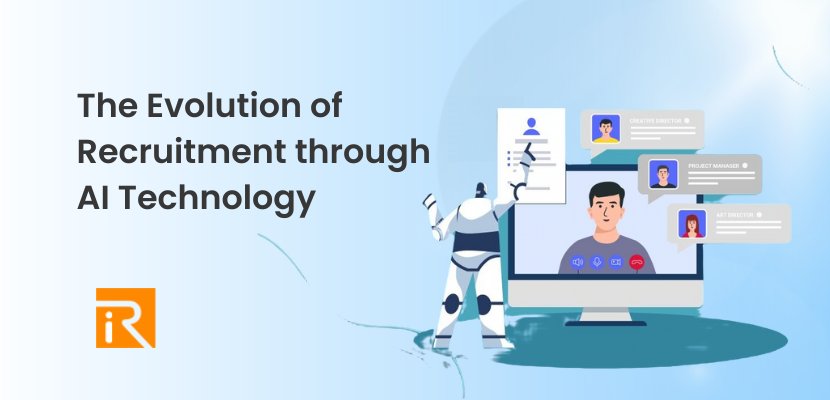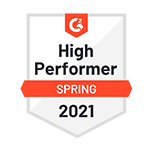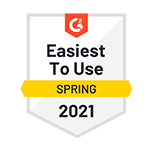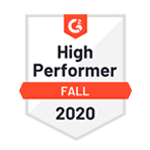Artificial Intelligence (AI) has revolutionized numerous industries, including recruitment. In today’s fast-paced business environment, traditional recruiting methods are no longer sufficient. As a result, AI recruitment has become increasingly crucial in streamlining the hiring process, reducing time-to-hire, and improving the quality of hires. AI recruitment tools utilize natural language processing (NLP), machine learning, and predictive analytics to automate routine tasks, such as resume screening and candidate matching. This allows recruiters to focus on more critical aspects of recruitment, such as developing hiring strategies, building relationships with potential candidates, and making informed decisions based on data-driven insights. In this article, we will explore the various benefits and challenges of AI recruitment, how it is changing the recruiting industry, and what the future holds for AI recruitment.
What is AI Recruitment?
AI recruitment is a new and innovative approach to talent acquisition that uses artificial intelligence technology to streamline the recruitment process. It involves the use of machine learning algorithms and data analysis to make data-driven decisions in every stage of recruitment.
One of the key benefits of AI recruitment is that it can help recruiters to screen and identify the most qualified candidates quickly and efficiently. With AI technology, recruiters can analyse vast amounts of data from resumes, job descriptions, and social media profiles to identify patterns and match candidates to job requirements. This helps to reduce the time spent on manual screening, allowing recruiters to focus on more strategic tasks such as interviewing and candidate engagement.
Another significant benefit of AI recruitment is that it can help to reduce bias in the recruitment process. The technology is designed to be objective and data-driven, which means that it can eliminate unconscious bias that can often influence human recruiters. AI algorithms can help to identify and recruit a more diverse and inclusive pool of candidates, leading to a more diverse and inclusive workforce.
AI recruitment technology can also automate repetitive and time-consuming tasks, such as resume screening and scheduling interviews. This can save recruiters a significant amount of time, enabling them to focus on more strategic tasks that require human interaction. Automated scheduling can also help to reduce scheduling errors and improve the candidate experience.
What is AI Recruitment Technology?
AI recruitment technology, also known as artificial intelligence recruitment technology, is the use of machine learning algorithms, natural language processing, and chatbots to automate and streamline various stages of the recruitment process. This technology can help HR teams to identify, attract, engage, and hire top talent more efficiently.
Machine learning algorithms are a core component of AI recruitment technology. These algorithms can analyse large data sets, such as job descriptions, candidate resumes, and social media profiles, to predict candidate success. This analysis helps HR teams to focus their efforts on the most promising candidates, reducing the time and effort required for screening.
Another important technology used in AI recruitment is natural language processing (NLP). NLP enables the software to analyse and understand written or spoken language, which is essential for understanding candidate resumes and cover letters. NLP can analyse the language used to describe a candidate’s skills, experience, and qualifications, making it easier to determine whether they are a good fit for the job.
Chatbots are also a vital component of AI recruitment technology. These digital assistants can interact with candidates in real-time, answering their questions and providing them with information about the company, job openings, and the recruitment process. Chatbots can also schedule interviews and send reminders, saving HR teams valuable time.
AI recruitment technology can also help to eliminate bias in the recruitment process by removing unconscious biases that can affect human recruiters. By removing these biases, AI technology can help to create a more diverse and inclusive workforce.
How AI is Changing Recruiting Industries
Artificial Intelligence (AI) technology is revolutionizing the recruitment industry, providing recruiters with more efficient and reliable tools to identify and attract top talent. AI-powered tools are increasingly being integrated into recruitment processes to automate repetitive tasks and streamline the hiring process. This has brought about significant changes in the way recruiting is conducted, from candidate screening to talent management.
One of the primary benefits of AI in recruiting is the reduction in bias during the candidate screening process. AI algorithms can analyse resumes without any bias or subjective factors, ensuring a fair and objective selection process. This not only improves diversity and inclusion within the organization but also helps recruiters to identify the best candidates for the role. Additionally, AI can help to identify candidates with relevant skills and experience by scanning resumes for specific keywords and phrases, and can even assess a candidate’s suitability for a role based on their social media activity and online presence.
Another significant change that AI has brought to the recruiting industry is the automation of repetitive tasks. Tasks such as screening resumes, scheduling interviews, and sending follow-up emails can be easily automated, allowing recruiters to focus on other critical aspects of recruitment, such as candidate engagement and retention. AI can also help to speed up the hiring process, reducing the time-to-hire, and enabling recruiters to fill positions faster and more efficiently.
AI can also be used to enhance the candidate experience by providing a personalized and seamless recruitment process. Chatbots, for example, can be used to provide candidates with instant responses to frequently asked questions and provide real-time feedback on their application status. This not only improves the candidate experience but also allows recruiters to scale their operations and engage with a larger pool of candidates.
Why Staffing Agencies Need AI Recruitment
As the demand for talent continues to rise, staffing agencies are under immense pressure to source the right candidates in a timely and efficient manner. This is where AI recruitment comes in, providing a range of benefits to staffing agencies that can help them meet their clients’ needs and maintain a competitive edge in the industry.
One of the most significant advantages of AI recruitment for staffing agencies is its ability to automate repetitive tasks. This includes tasks such as candidate screening, scheduling interviews, and sending out follow-up emails. By automating these processes, staffing agencies can save a significant amount of time and resources, allowing them to focus on building relationships with candidates and clients. This, in turn, can help to improve client satisfaction and increase the likelihood of repeat business.
AI recruitment also allows staffing agencies to analyse vast amounts of data quickly and accurately. This includes candidate data, such as resumes and job applications, as well as data on the job market and industry trends. By analysing this data, staffing agencies can gain valuable insights into the skills and qualifications that are in high demand, enabling them to proactively source candidates with these skills. This can help staffing agencies stay ahead of the curve and better meet the needs of their clients.
Another key benefit of AI recruitment for staffing agencies is its ability to improve the candidate experience. Chatbots, for example, can provide candidates with instant feedback and personalized recommendations. Hence, makes it easier for them to navigate the recruitment process.
On the other hand, video interviewing with AI can also provide a more convenient and flexible interview experience for candidates. allowing them to showcase their skills and personality in a way that may not be possible with traditional in-person interviews.
In addition to improving the candidate experience, AI recruitment can also help to reduce bias in the recruitment process. AI algorithms can analyse candidate data objectively, without being influenced by factors such as age, gender, or ethnicity. This can help staffing agencies to recruit more diverse candidates and ensure that their clients are getting access to the best talent available.
Overall, AI recruitment provides a range of benefits to staffing agencies, including increased efficiency, improved candidate experience, and reduced bias. As the recruitment industry continues to evolve, it is likely that AI will play an increasingly important role in the staffing agency landscape.
AI Recruitment Trends
AI recruitment has been steadily growing, with more and more companies adopting the technology. One significant trend is the integration of AI into applicant tracking systems (ATS). This integration allows recruiters to use a custom AI development company to analyze candidate data and identify the best fit for the job. Another trend is the use of chatbots to engage with candidates, answer their questions, and schedule interviews. These chatbots are available 24/7, allowing candidates to engage with the company at their convenience.
Incorporation of AI into Applicant Tracking Systems (ATS):
Applicant Tracking Systems (ATS) have long been popular tools for recruiters. With the incorporation of AI, these systems have significantly improved their functionality. AI-powered ATS can analyze candidate data, including resumes, job applications, and social media profiles, to identify the most suitable candidates for a particular job. The AI-powered ATS quickly identifies relevant skills, experience, and qualifications that match the job requirements. This saves recruiters a significant amount of time and resources in the candidate screening process. Also, it allows them to focus on more critical tasks.
AI-Powered Applicant Tracking Systems
Analysis of Candidate Data:
AI-powered ATS can analyse vast amounts of data quickly and accurately. This analysis includes candidate resumes, job applications, and social media profiles, among others. The system uses machine learning algorithms to identify relevant information such as skills, experience, and qualifications. The analysis is done at scale, allowing recruiters to identify the best candidates for the job.
Quick Identification of Relevant Skills and Qualifications
The AI-powered ATS can quickly identify relevant skills and qualifications that match the job requirements. The system can match the candidate’s skills and qualifications to the job requirements, making it easy for recruiters to select the best candidate.
Saving Time and Resources for Recruiters
The AI-powered ATS has significantly reduced the time and resources spent on the recruitment process. With the ability to analyse vast amounts of data quickly and accurately, recruiters can focus on more critical tasks such as interviewing candidates and making hiring decisions.
Chatbots for Candidate Engagement
Conversational Communication with Candidates
Chatbots are AI-powered communication tools that can communicate with candidates in a conversational manner. Chatbots can answer candidate’s questions and schedule interviews. The chatbot’s conversational interface allows candidates to engage with the company in a more natural way, which improves the candidate experience.
24/7 Availability and Scalability
Chatbots are available 24/7, which allows candidates to engage with the company at their convenience. The chatbots can handle a high volume of candidate interactions simultaneously, making them highly scalable.
Personalized Candidate Experience
Chatbots can provide a personalized candidate experience by offering tailored recommendations and suggestions. These recommendations are based on the candidate’s qualifications, preferences, and job history. This level of personalization can help create a positive impression of the company. It also improves the candidate experience and increasing the likelihood of the candidate accepting the job offer.
Positive Impression on Company and Increased Acceptance Rate
Chatbots provide a positive impression of the company by providing a personalized candidate experience. This improved impression can increase the likelihood of the candidate accepting the job offer.
Video Interviewing with AI
Analysis of Facial Expressions and Body Language
Video interviewing technology uses AI to analyse the candidate’s facial expressions and body language during the interview. The analysis provides recruiters with insights into the candidate’s personality, emotional intelligence, and communication skills.
Insights into Personality, Emotional Intelligence, and Communication Skills
The analysis of facial expressions and body language provides valuable insights into the candidate’s personality, emotional intelligence, and communication skills. These insights can help recruiters make informed decisions when selecting the best candidate for the job. It also allows recruiters to assess the candidate’s cultural fit with the company and the team.
Efficiency and Time-Saving
Video interviewing with AI is an efficient and time-saving method of conducting interviews. It allows recruiters to conduct interviews remotely, reducing the time and resources spent on arranging and conducting in-person interviews.
Improved Candidate Experience
Video interviewing with AI provides a more convenient and flexible interview experience for candidates. It also allows candidates to showcase their communication skills and personality, which may not be evident on their resumes. This improved experience can help create a positive impression of the company, improving the likelihood of the candidate accepting the job offer.
Future of AI Recruitment
The future of AI recruitment is shaping up to be a transformative force in the recruitment industry. Companies are expected to experience increased efficiency, accuracy, and cost-effectiveness in the recruitment process as they continue to invest in AI recruitment technology. The following are some of the significant aspects that are expected to drive the future of AI recruitment.
Predictive Analytics
One of the most significant aspects of the future of AI recruitment is the use of predictive analytics. AI algorithms can be trained to analyse candidate data and make predictions about their success in a particular role. This technology allows recruiters to identify the most promising candidates and make more informed hiring decisions. With the ability to analyse vast amounts of data, AI can identify patterns and trends that would be difficult or impossible for humans to discern.
Natural Language Processing
Another aspect of AI recruitment that is expected to become more prevalent is natural language processing (NLP). NLP lets machines comprehend human language, improving analysis of resumes and cover letters. It assesses communication skills and personality traits, providing insight for recruiters.
Chatbots and Virtual Assistants
AI-powered chatbots and virtual assistants are expected to become more common in the future of AI recruitment. These tools can automate the early stages of the recruitment process, such as answering candidate questions, scheduling interviews, and sending reminders. By automating these tasks, recruiters can save time and focus on more strategic tasks. Additionally, chatbots and virtual assistants can provide a more personalized candidate experience, leading to higher candidate satisfaction.
Virtual Reality
The use of virtual reality (VR) in the recruitment process is another important aspect. VR can be used to simulate job roles, allowing candidates to get a better understanding of the role’s requirements. This technology can also be used to assess a candidate’s skills and abilities. It allows recruiters to make more informed hiring decisions. With the ability to create realistic and immersive simulations, VR can provide a unique and engaging recruitment experience for candidates.
Conclusion
AI recruitment has become an integral part of the recruitment process. As it has the ability to enhance the hiring process and reduce bias. Staffing agencies, in particular, can benefit from the technology. It enables them to focus on building relationships with candidates and clients. The future of AI recruitment is promising, with predictive analytics and virtual reality set to transform the recruitment process further. RecruitBPM is an AI recruitment tool that can help staffing agencies automate their recruitment processes. It enables them to focus on building strong relationships with candidates and clients.
FAQs
Q: What is AI recruitment?
A: AI recruitment refers to the use of artificial intelligence to enhance the recruitment process.
Q: What is AI recruitment technology?
A: AI recruitment technology is the set of tools that make AI recruitment possible. It includes machine learning algorithms, natural language processing, and chatbots.
Q: How is AI changing recruiting?
A: AI is changing recruiting in several ways. It can automate repetitive tasks, such as resume screening and scheduling interviews, allowing recruiters to focus on more strategic tasks. AI can also analyze job postings to suggest improvements that can attract more diverse and qualified candidates. Additionally, AI-powered chatbots can provide a more personalized candidate experience and help answer candidate questions.
Q: What are the benefits of AI recruitment?
A: The benefits of AI recruitment include increased efficiency, improved candidate experience, and the ability to make data-driven hiring decisions. AI can also reduce bias in the recruitment process by removing human subjectivity and identifying candidates based on their skills and qualifications.
Q: Are there any drawbacks to AI recruitment?
A: One potential drawback of AI recruitment is the risk of perpetuating or amplifying bias, especially if the algorithms are trained on biased data. Additionally, some candidates may prefer human interaction over interacting with a chatbot. Finally, AI recruitment technology can be expensive and time-consuming to implement.
Q: Is AI replacing recruiters?
A: No, AI is not replacing recruiters. While AI can automate certain tasks, such as resume screening, recruiters still play an important role in the recruitment process. It includes developing relationships with candidates, conducting interviews, and making hiring decisions. AI can augment and enhance the work that recruiters do, but it cannot replace the human element of recruiting.






















